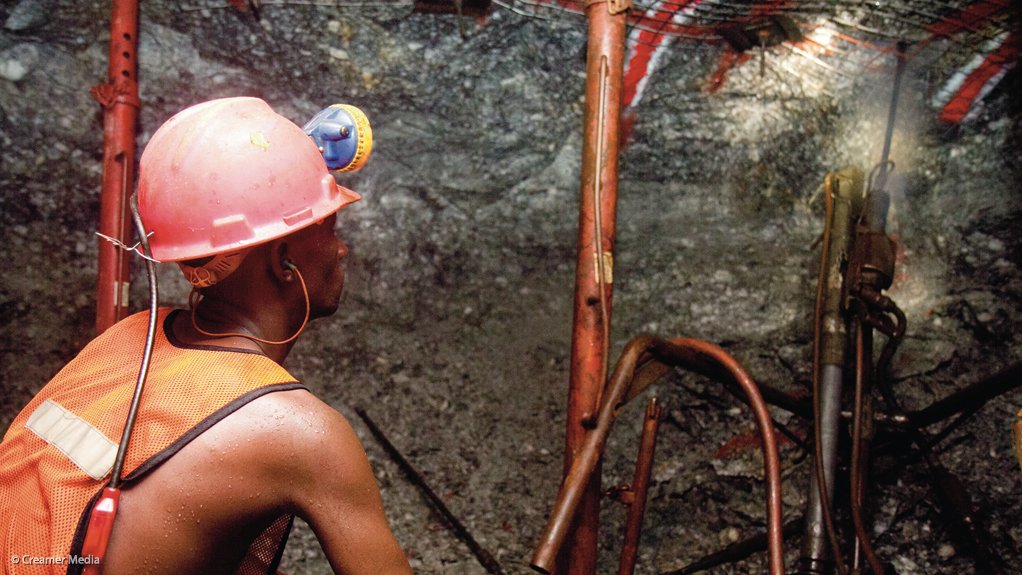PRETORIA (miningweekly.com) – A strategy was required to improve the portability of social security benefits of migrant mineworkers, Southern Africa Trust consultant Dr Mathais Nyenti said on Thursday.
Speaking at a regional dialogue hosted by the Southern Africa Trust and the Ford Foundation, in conjunction with the Southern Africa Miners Association, in Pretoria, Nyeti pointed out that about 86% of migrant workers from Botswana, Lesotho, Mozambique, Swaziland and Zimbabwe were currently working in South Africa and that this was a significant issue that had to be addressed.
He also mentioned that, according to the Southern Africa Trust’s calculations, in 2013, about R5.7-billion in benefits was owed to former migrant workers.
This figure included an estimated R3-billion owed by the Mineworkers Provident Fund, while the Mines 1970s Pension and Provident Funds owed R200-million, the Sentinel Mining Industry Retirement Fund owed about R101-million in benefits and the Living Hands Umbrella Trust lost R1.2-billion in the Fidentia scandal.
Further, the Department of Labour’s Compensation Commissioner for Occupational Diseases currently had a backlog of 18 000 claims, with up to 274 400 former mineworkers still to receive their benefits, while its Compensation Fund still had about 12 000 claimants to pay.
“It is clear that a large number of people still need to receive their benefits and, therefore, it is imperative that something is done to assist these people,” Nyeti stated.
Nyeti, in conjunction with consultant Professor George Mpedi, conducted a scoping study in 2013 on behalf of the Southern Africa Trust, on the challenges experienced by former mineworkers in selected Southern African countries relating to the portability of social security benefits. Through the study they identified the main challenges faced by migrant workers in accessing the benefits owed to them.
“Former mineworkers are faced by daunting social, structural, policy or regulatory, administrative and institutional obstacles,” Mpedi said, also speaking at the dialogue.
These challenges included migrants’ or dependants’ lack of information on access rights, procedures and administrative formalities, the impact of South African immigration law, the absence of portability or limited portability arrangements in South Africa social security laws and a lack of institutional capacity.
Mpedi said there was also a lack of administrative cooperation between various schemes, delays in payment of benefits and professional occupational health services were often inaccessible to the former workers.
Further, delivering the benefits that were due to mineworkers was also hampered by differences in national banking systems, a weak Southern Africa Development Community (SADC) regional framework for occupational injury and disease protection, and the limited application of international standards in relevant countries, Mpedi added.
He pointed out that the scoping study also found that the South African government and social security institutions were reluctant to properly disburse benefits to former migrant workers.
OUTLOOK
In future, significant political will, not only from government but also from benefit funds, would be needed to successfully trace and compensate former mineworkers, Mpedi said.
Further, he and Nyeti recommended that a decision be made on an integrated and comprehensive approach to addressing the plight of former migrant workers.
The report also suggested that social security institutions compile and publish lists of lapsed beneficiaries, and that mobile clinics be set up to provide medical examinations for mineworkers in labour-sending areas.
Meanwhile, to further address the issue of claiming benefits, it was proposed that geographically accessible facilities be set up in labour-sending countries to process claims, while appropriate payment methods should also be identified.
Mpedi also suggested that a portion of the unclaimed benefits, resulting from being unable to trace or identify a mineworker, be invested in social and economic programmes in migrant labour-sending areas.
EMAIL THIS ARTICLE SAVE THIS ARTICLE
To subscribe email subscriptions@creamermedia.co.za or click here
To advertise email advertising@creamermedia.co.za or click here











